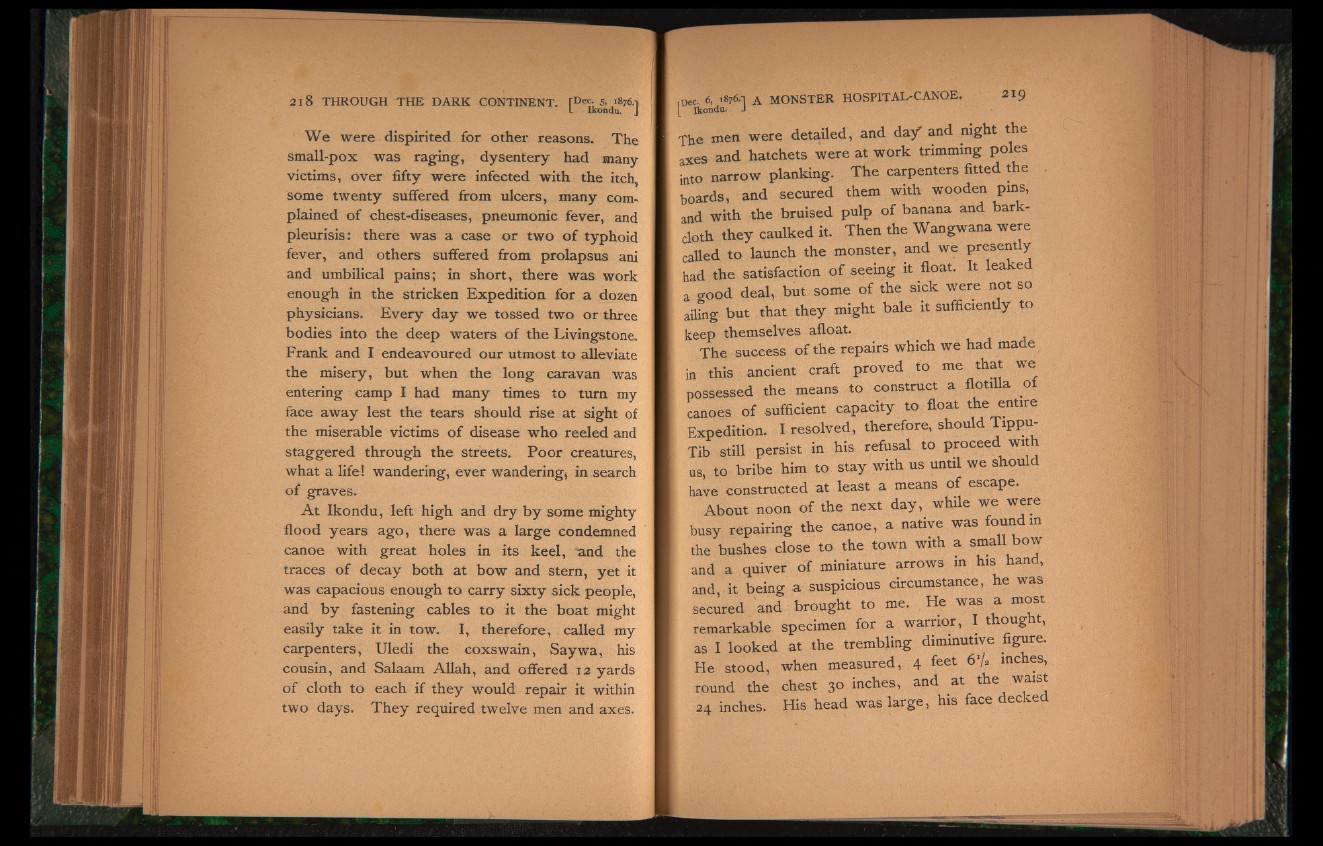
We were dispirited for other reasons. The
small-pox was raging, dysentery had many
victims, over fifty were infected with the itch,
some twenty suffered from ulcers, many complained
of chest-diseases, pneumonic fever, and
pleurisis: there was a case or two of typhoid
fever, and others suffered from prolapsus ani
and umbilical pains; in short, there was work
enough in the stricken Expedition for a dozen
physicians. Every day we tossed two or three
bodies into the deep waters of the Livingstone.
Frank and I endeavoured our utmost to alleviate
the misery, but when the long caravan was
entering camp I had many times to turn my
face away lest the tears should rise at sight of
the miserable victims of disease who reeled and
staggered through the streets. Poor creatures,
what a life! wandering, ever wandering) in search
of graves.
At Ikondu, left high and dry by some mighty
flood years ago, there was a large condemned
canoe with great holes in its keel, 'and the
traces of decay both at bow and stern, yet it
was capacious enough to carry sixty sick people,
and by fastening cables to it the boat might
easily take it in tow. I, therefore, called my
carpenters, Uledi the coxswain, Saywa, his
cousin, and Salaam Allah, and offered 12 yards
of cloth to each if they would repair it within
two days. They required twelve men and axes.
The men were detailed, and da/ and night the
axes and hatchets were at work trimming poles
into narrow planking. The carpenters fitted the
boards, and secured them with wooden pifls,
and with, the bruised pulp of banana and bark-
cloth they caulked it. Then the Wangwana were
called to launch the monster, and we presently
had the satisfaction of seeing it float. It leaked
a good deal, but some of the sick were not so
ailing but that they might bale it sufficiently to
keep themselves afloat.
The success of the repairs which we had made
in this ancient craft proved to me that we
possessed the means to construct a flotilla of
canoes of sufficient capacity to float the entire
Expedition. I resolved, therefore, should Tippu-
Tib still persist in his refusal to proceed with
us, to bribe him to stay with us until we should
have constructed at least a means of escape.
About noon of the next day, while we were
busy repairing the canoe, a native was found in
the bushes close to the town with a small bow
and a quiver of miniature arrows in his hand,
and, it being a suspicious circumstance, he was
secured and brought to me. He was a most
remarkable specimen for a warrior, I thought,
as I looked at the trembling diminutive figure.
He stood, when measured, 4 feet 6V* mches>
round the chest 30 inches, and at the waist
24 inches. His head was large, his face decked